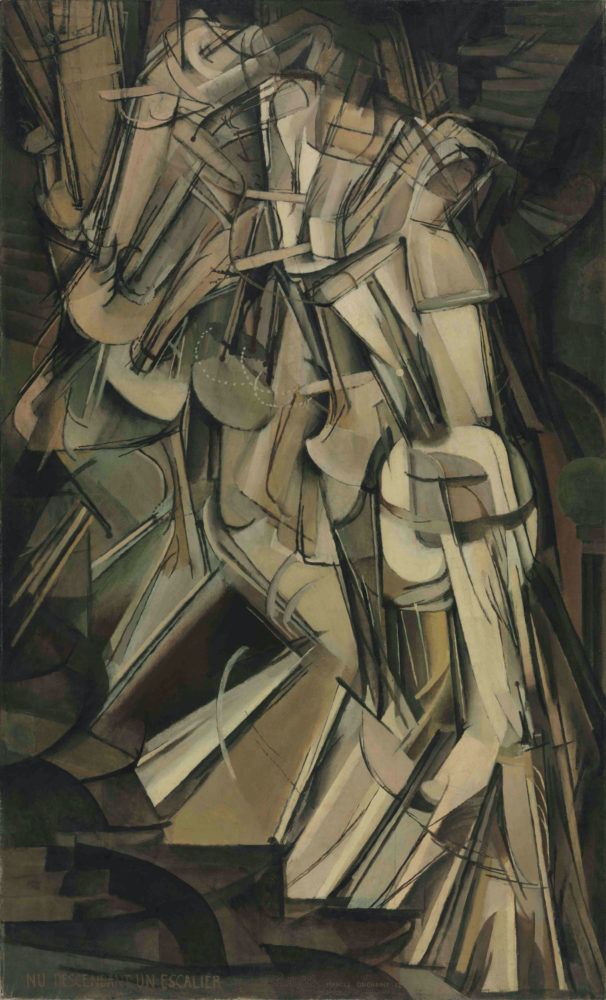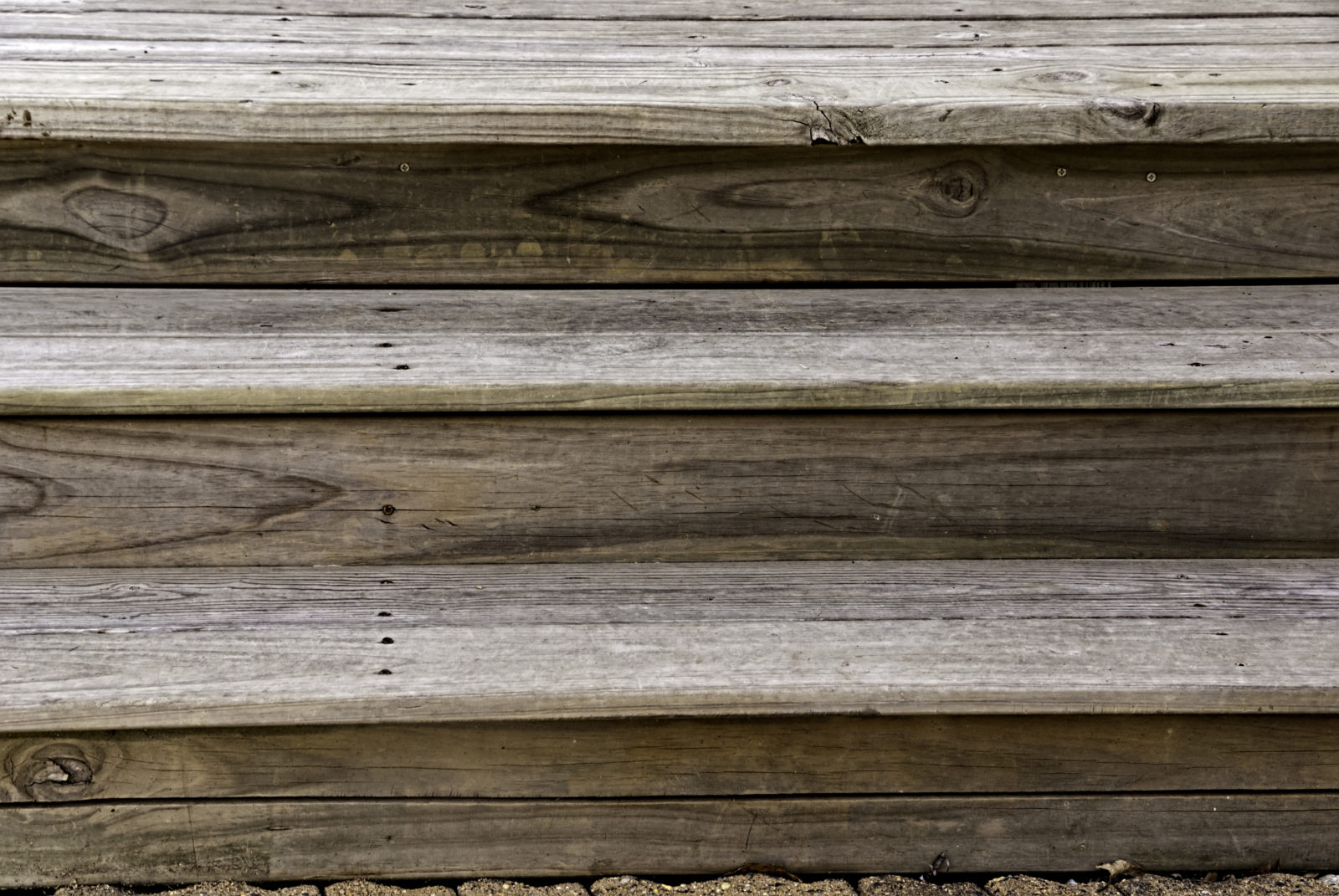A Darwinist’s Declension (Nude Descending a Staircase)

First they said that only ignorant rubes doubted Darwin. One was meant to recall the mob scene in the film of Inherit the Wind. The image is trite, but it works. However, when Phillip Johnson, a distinguished professor of legal evidence at Berkeley, came along with Darwin on Trial, they changed their line and said that, while he is an intellectual, he is not qualified to speak because he is not a scientist.
Then came Behe and Dembski and other scientists with stellar academic credentials, so then the rebuke became: They are only a handful. “Almost every reputable scientist in the world” accepts Darwin’s theory. When, in reply, Discovery Institute produced, first 100, and now over 400 scientists brave enough to confront their colleagues with a “Dissent from Darwin” statement, the Darwinist judges said, Well, we still have far more scientists who support evolution (as if that had been the issue).
Then they added: If the Darwin-doubters and design advocates want to be taken seriously they must publish in peer-reviewed science journals. Never mind that the Darwinists work hard to blackball on principle any heretics whose work is submitted at such journals. Yet, even in the face of such tactics, more and more Darwin critics and design proponents began to break through in peer-reviewed journals. So the Darwinists (as in the Sternberg case at the Smithsonian) attacked the journal editors who allowed such outrages to occur. In the case of the Smithsonian, critics with relatively unimpressive scientific credentials besmirched an editor who has two doctorates in evolutionary biology.
Meanwhile, the Darwinists decided to try to dispatch the challenge to Darwin by defining it out of existence, especially at state school boards. They just pronounced it “unscientific”. That required, however, a change in the definition of science. Traditionally, as state school boards had long held, science was defined as “a systematic method of continuing investigation that uses observation, hypothesis testing, measurement, experimentation, logical argument and theory building to lead to more adequate explanations of natural phenomena” (the actual language of a Kansas state school board draft). But Darwinists have a different and new definition (also from Kansas), that science is “the human activity of seeking natural explanations for what we observe in the world around us.” In practice (as Denyse O’Leary points out in her blog at Post-Darwinist.com), that means criticism is allowed only if it rules out design ahead of time. In other words, Darwin’s theory, alone in science, may not be doubted as a whole, because any challenge is by definition (that is, the new definition) “not scientific”. Fortunately, the new definition exists mainly in Darwinist rhetoric and has not yet come to dominate teaching or research.
So then the Darwinists retreated to the latest line of defense: If the Darwin dissenters and intelligent design advocates are to be taken seriously they should be doing lab science; a.k.a., “real science”. As usual, this standard does not apply to work by Darwinists, only to their adversaries. Also, as with the peer reviewed science journals, the Darwinists are prepared to do all they can to prevent dissenters from getting lab space and to keep those who do lab experiments from publishing their results. In other words, the Darwinists’ supposed standards once again are hypocritical. All that notwithstanding, it will shortly be known that Darwin doubters and design advocates are indeed doing lab science.
So, to prevent exposure of the incapacity of their theory, what is the next test the Darwinists are going to come up with? Will it not be a religious test that explicitly examines supposed motives rather than evidence or logic; that says that any scientist who is both religious in his personal views and a critic of Darwin in science is, by that combination, banished from debate on the topic of evolution? How far against the tradition of scientific freedom will the defenders go to defend their turf?
The Emperor who had no clothes made a terrible mistake in allowing just anyone who looked at him to form an opinion on his nudity. He should have required any oral comments on his new suit to be conducted solely by people holding Certificates of Official Observation — and made sure that none of those was issued. He also should have had his minions investigate and publicize any unorthodox personal views or associations that the little boy in the story had, and any skeletons in the closet of the boy’s family. One can’t be too thorough about such things if one wants to avoid embarrassment.
